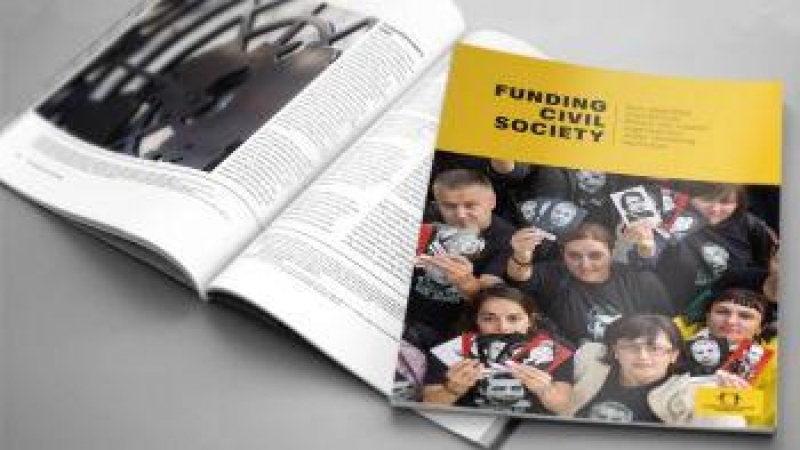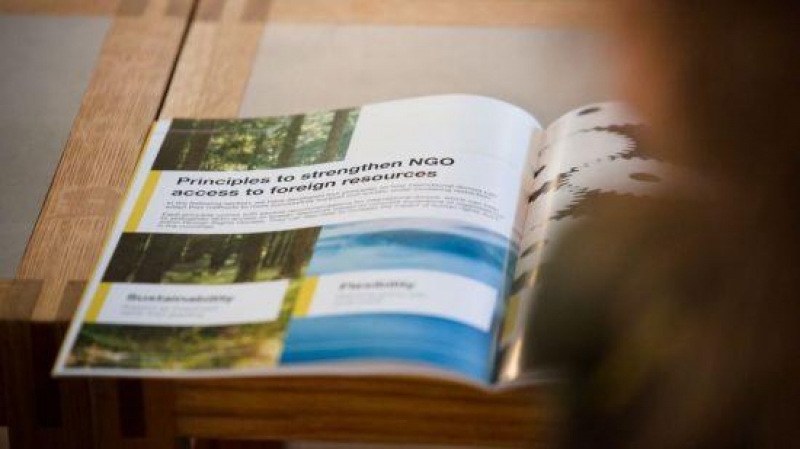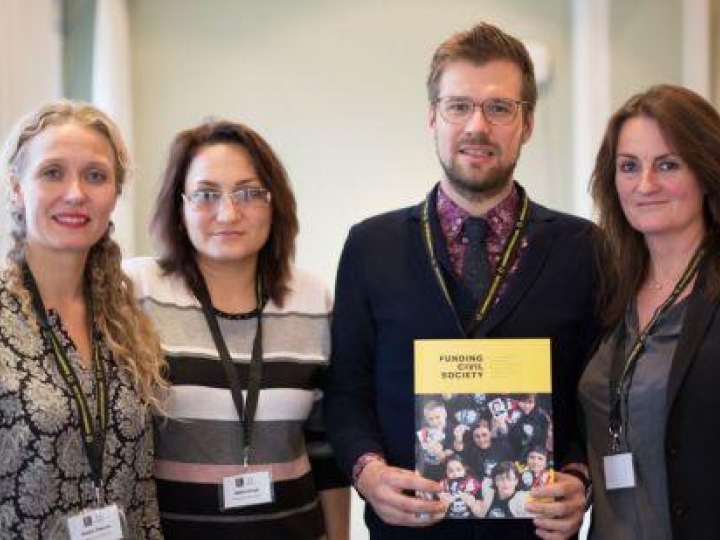Donors’ support for human rights and civil society is badly needed... so is their willingness to think outside the box. Maina Kiai, former United Nations Special Rapporteur on the rights to freedom of peaceful assembly and of association, serving from 2011 until 2017
More and more countries are adopting restrictive and stigmatising laws and practices that hinder foreign funding for civil society, especially human rights organisations and defenders.
“These restrictive mechanisms have proven effective, because foreign funding is often the only financial support available to human rights organisations. This restriction impedes on the organisations’ autonomy, sustainability and ability to work. The consequence of this is critical voices are suppressed, and GONGOs (Government organized NGOs), and those supportive of the government take over the space for civil society.” commented Maria Dahle, Director at HRHF.
This restriction impedes on the organisations’ autonomy, sustainability and ability to work. The consequence of this is critical voices are suppressed Maria Dahle, Director at Human Rights House Foundation

The report “Funding Civil Society - How adaptable international donors can support organisations under increasing restriction” addresses these trends. It aims to provide international donors with the means to review their working methods. It also empowers human rights non-governmental organisation (NGOs) with guidance on how to strengthen partnerships with international donors. The report is available in both English and Russian.
The findings and recommendations in the report are based on information collected from various Human Rights Houses and their partner and member NGOs, donors that have successfully adapted their working methods, as well as HRHF’s years of experience working with international donors and of acting as a donor itself to Human Rights Houses.
“We wanted to make a report to analyse the situation and to gather information from human rights organisations and donors that have adapted to the situation and can share the best practices and their recommendations on how to further improve how we support independent civil society under these very difficult circumstances,” continued Maria Dahle.
Based on the findings, the report provides practical solutions to counter restrictions, outlining four key principles and corresponding recommendations for international donors to strengthen and continue their support for human rights NGOs.

The four key principles are sustainability, flexibility, coordination, and independence.
Sustainability suggests that support should be regarded as investment, rather than granting, and argues that progress in achieving human rights is often a long-term goal. That is, not all human rights work can be planned within strict and limited projects; it can depend on opportunities. International donors should stay when the situation becomes difficult, support civil society in all forms, and embrace flexible and adaptable reporting methods. They should provide more multi-year and renewable grants and more institutional and core grants, and provide political support to grantees.
Flexibility refers to matching grants with local needs. International donors should involve NGOs when designing grant schemes, adapt grants in exceptional circumstances, and allow the re-allocation of funds. Further, they should use relevant local languages, utilise appropriate timeframes for applications and reporting, and avoid excessive territorial requirements.
Coordination is essential to ensure various types of human rights NGOs and human rights defenders can apply. Donors should increase their cooperation with other donors, provide more feedback to applicant grantees, support and encourage NGO coalitions, support independent local funding, and standardise applications and reporting.
Independence and security of grantees should be a priority for donors. A stronger partnership between international donors and NGOs based on mutual trust and respect of each other’s roles could play a key role in countering the global decline in freedoms. Donors should prioritise security over transparency, prioritise grantee independence, use secure communications, and only fund independent organisations.
“Some donors have already adapted their grant schemes and conditions for support in order to work in this challenging situation with increased restriction. The report has been inspired by their successes, and offers a clear list of best practices that we hope can encourage more donors to adapt in order to support independent civil society,” concluded Maria Dahle.
Watch the interview with Sandra Petersen, executive director of Norwegian Human Rights Fund.

